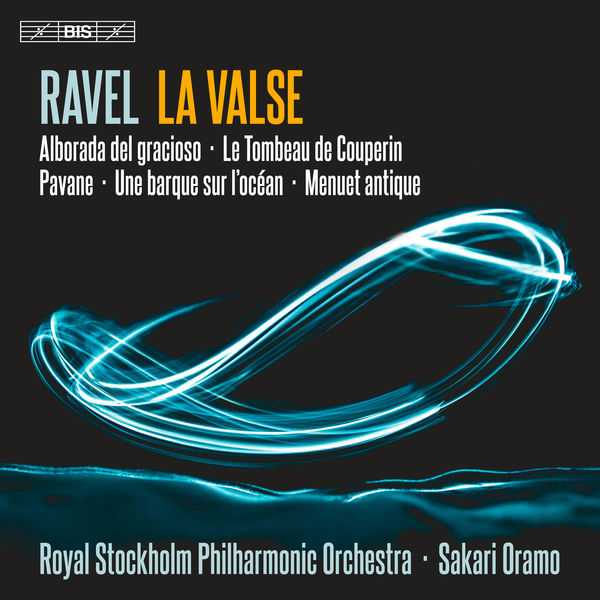

Composer: Maurice Ravel
Orchestra: Royal Stockholm Philharmonic Orchestra
Conductor: Sakari Oramo
Format: FLAC (tracks)
Label: BIS
Catalogue: BIS-2438
Release: 2022
Size: 1.15 GB
Recovery: +3%
Scan: yes
Le Tombeau de Couperin
01. I. Prélude
02. II. Fugue
03. II. Forlane
04. IV. Rigaudon
05. III. Menuet
06. VI. Toccata
Miroirs, M. 43 (Version for Orchestra)
07. No. 4, Alborada del gracioso
08. No. 3, Une barque sur l’océan
09. Pavane pour une infante défunte
10. Menuet antique
11. La Valse
Maurice Ravel composed a number of works which have become classics of the repertoire both for solo piano and for orchestra. Here, all except one work were first conceived for piano, which raises the question how it is possible to transfer such pianistic music to the orchestra without making it sound like a mere “colourized” version.
Ravel’s orchestral writing was the result of a long apprenticeship and careful study of orchestration treatises as well as scores, notably of works by Rimsky-Korsakov and Richard Strauss. Although his skills as an orchestrator are much admired today, his ability to coax new sounds out of the orchestra wasn’t always appreciated in his own time, however – in 1907 the critic Pierre Lalo complained that “in Ravel’s orchestra, no instrument retains its natural sound…”.
Among the works performed here by Sakari Oramo and the Royal Stockholm Philharmonic Orchestra are some of Ravel’s earliest compositions, including the much loved Pavane pour une infante défunte, but this recording closes with a later work: La Valse, written in 1920 as one of only four works by Ravel originally conceived for orchestra. The idea of composing a tribute to Johann Strauss had pursued Ravel since 1906, but it took a commission from Sergei Diaghilev of the Ballets russes for him to return to the project. When Diaghilev found it unsuited for a ballet, Ravel gave it the subtitle “choreographic poem for orchestra”. It was performed in concert in 1920 for the first time and enjoyed an immediate success.